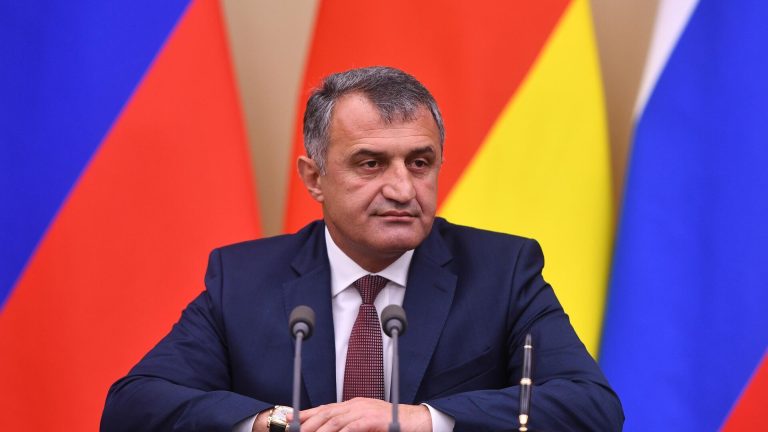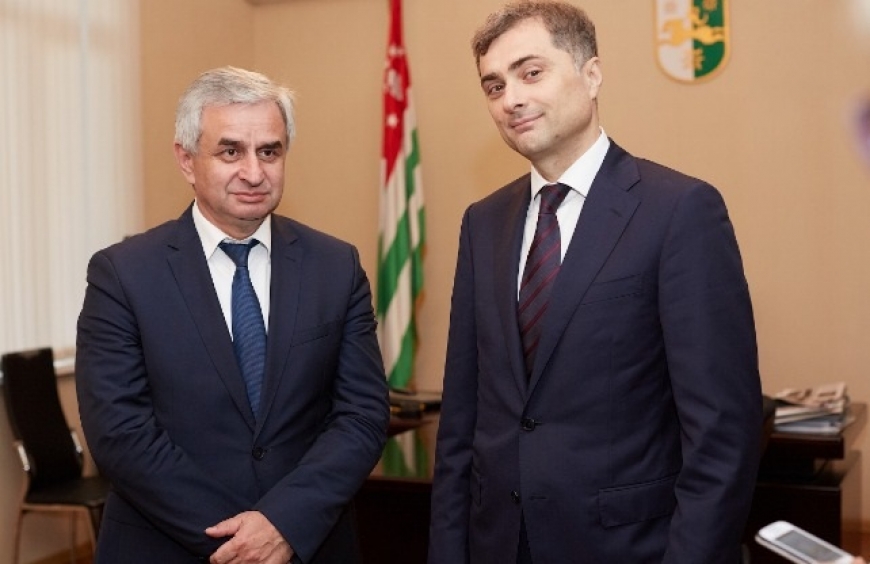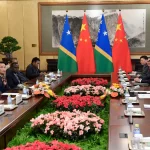Alan Gagloev, an opposition candidate, chairman of the Nykhaz party, former KGB operative won the presidential election in unrecognized puppet South Ossetia, with 54% of the vote.
He defeated the incumbent President Anatoly Bibilov in the second round, believed to be the Kremlin’s favorite, advocating for a referendum to enable Russia annex South Ossetia. He’s got 43% of the vote.
Moscow recognized the independence of South Ossetia and Abkhazia following the war Russia launched against Georgia in August 2008. As it separated from Georgia and was occupied by Russian troops, a Russian military base was deployed there. Russian financial aid exceeds 83% of budget revenues in breakaway state.
Gagloev has been leading the race from the first round, with the voting on April 10. Though Moscow backed Bibilov from the very beginning, that support was lost after the first round. That means the Kremlin was sure both main candidates were pro-Russian, staging a kind of “democratic” expression.
This was made possible after Bibilov had cleared the political field, having deprived his potential competitors of a chance to register.
Gagloev has, obviously, got support as he had no anti-rating, while it was high for the corrupt Bibilov team.
This indicates the Kremlin counted on Gagloev. Aside from that, Bibilov’s rating was shaken as he advocated sending South Ossetians from the 4th Russian military base in Tskhinval to Ukraine, to take part on the side of Russian invaders. At least two groups of 500 people who formed 2 battalion tactical groups are known to have been sent.
One of those, comprising 300 local Ossetians, withdrew from fighting and deserted, over intolerable conditions. Another blow on Bibilov’s image was also made in August 2020, when Inval Dzhabilov from Tskhinval was detained and tortured, which made the government of South Ossetia to resign.
Bibilov’s replacement by Gagloev, however, echoes another effort by Moscow to replace the LPR puppet leader in 2018, when Leonid Pasechnik, an intelligence operative coordinated by the FSB, replaced another Kremlin creation – Plotnitsky (coordinated by the GRU), as he made Russian handlers angry with corruption and stealing the money Moscow sent to the LPR.
Gagloev was brought into politics by Leonid Tibilov, a KGB man, former president of unrecognized South Ossetia, which implicates Gagloev is coordinated by the FSB.
The change of president in the breakaway state will not affect the degree of control by Moscow, therefore. As with the LPR, Moscow, hit by sanctions, seeks to reduce corruption and stealing Russian money. Having changed the leader of South Ossetia, Moscow hopes to optimize expenses and reduce funding for this area.
Russia has faced a serious challenge in South Ossetia, as it did not annex it, and now has to deal with its disappointed people, with constant financing by the Kremlin needed, under the sanctions. If annexed, however, Moscow will lose its instrument of pressure on Tbilisi and become more isolated. At the same time, if Russians succeed in the Donbas, and annex the LPR and DPR, South Ossetia is most likely to follow that way. That is why the Kremlin minimized the speculations by Tskhinval, making Moscow the only one to raise the question of joining Russia.
The developments in South Ossetia, therefore, indicate the effort by Russia to reduce the massive financial embezzlement in puppet regimes, to make them more manageable.
The change of power in South Ossetia speaks about the trend to replace the puppet leaders in the occupied territories coordinated by the GRU with those coordinated by the FSB. The replacement is likely to be performed by the Patrushev group that consistently discredits the Shoigu group.





